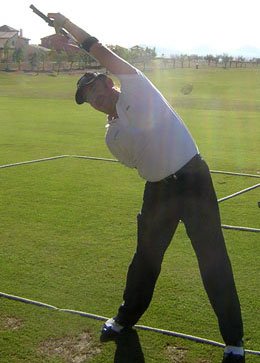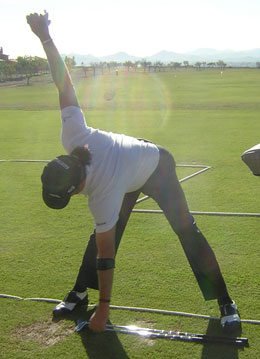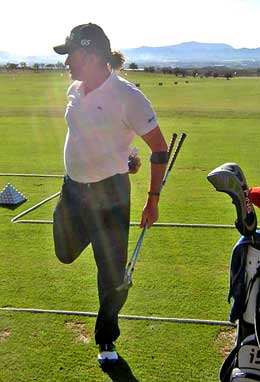The 'physical demands' of golf
How to take care of yourself on the course

 |  | |
routine Don't let anyone tell you golf isn't a physically demanding Tiger Woods has revealed that his practice routine before the His win over Rocclo Mediate after a 19-hole play-off, confirms "We just beat up our bodies," Jack Nicklaus told the And the act of driving the ball in search of that booming tee A study in The Golf Biomechanic's Manual by Paul Chek | ||
 muscles | "This is the same intensity as picking up a weight that can only be lifted four times before total fatigue. This level of exertion and muscular activation equates golf with such sports as American football (equivalent say to rugby), ice-hockey and martial arts. The difference is that other athletes outside of golf include conditioning as an integral part of their preparation before they play." Amateurs don't grind nearly as much He says: "You can't hit the ball 300 He suggests a 30-minute warm-up. "Before heading to the range, do | |
"Warming up is huge,'' says Golden. He also suggests taking a lesson "A golf pro can point out flaws that And don't ignore any pain, Golden "If back or joint pain persists, get He says the average Joe Public looks "That is absolutely untrue. There is So if the approaching Open Tell us on the forum about your | ||

